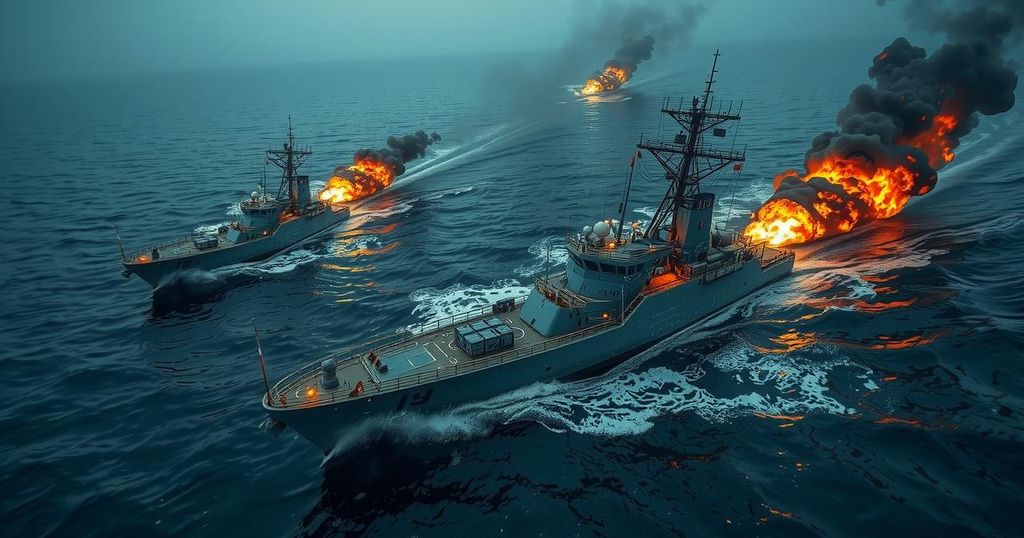Escalating Tensions: Russian Ship Fires at German Helicopter Amid NATO Concerns

A Russian ship recently fired at a German military helicopter over the Baltic Sea, prompting escalated tensions amid NATO’s military exercises suspension. Allegations of Russian espionage targeting Ukrainian forces on a US base in Germany emerged, while Ukraine makes battlefield gains against Russian forces. Political uncertainties in France may impact support for Ukraine, and a military treaty between North Korea and Russia signals shifting global alliances.
Tensions continue to escalate in the Baltic Sea following an incident where a Russian naval vessel fired upon a German military helicopter, reportedly utilizing “signal munitions,” as confirmed by German Foreign Minister Annalena Baerbock. This development coincides with NATO member states halting military exercises in the region amid concerns about damage to critical infrastructure, likely caused by sabotaged underwater cables and pipelines. Meanwhile, discussions within NATO have revealed that some member nations are awaiting the potential return of Donald Trump to the White House before deciding on Ukraine’s membership in the alliance.
In parallel, significant diplomatic discussions are occurring regarding the humanitarian implications of the war in Ukraine. Pope Francis recently met with Hungary’s Prime Minister Viktor Orban to address the situation in Ukraine, emphasizing humanitarian efforts and peace promotion, particularly towards the substantial influx of Ukrainian refugees into Hungary since the conflict’s onset.
In another concerning development, a UK court revealed that alleged Russian spies attempted to infiltrate a US military base in Germany, which was thought to be training Ukrainian forces on crucial air defense systems. In light of these ongoing conflicts, British defense officials have indicated a need for rebuilding the nation’s military capabilities, as current levels may not suffice in the event of a large-scale conflict.
Additionally, reports indicate gradual advancements by Ukrainian forces near Kharkiv, signifying ongoing resistance against Russian advances. Meanwhile, a Ukrainian drone allegedly caused civilian casualties in Chechnya, further intensifying regional tensions.
France’s inability to effectively manage its government transition may hinder its ability to support Ukraine, raising concerns about future military aid. Furthermore, the recent ratification of a military treaty between North Korea and Russia highlights the shifting geopolitical dynamics that underscore these challenges.
The Ukraine-Russia conflict has been characterized by increased military confrontations, diplomatic tensions, and humanitarian crises since Russia’s invasion began in February 2022. NATO’s involvement and member countries’ support for Ukraine have been critical in shaping the international response to the conflict. The firing incident over the Baltic Sea underscores the increased hostility between Russia and NATO members, particularly Germany, which has been a key supporter of Ukraine. Meanwhile, geopolitical dynamics are shifting, with emerging alliances, such as the North Korea-Russia pact, highlighting broader implications for global security.
In conclusion, the ongoing Ukraine-Russia war is marked by heightened military tensions, revealed espionage plots, and complex geopolitical dynamics. The recent incident involving a German helicopter points towards escalated hostility in the Baltic region, while diplomatic discussions reveal critical considerations for NATO’s expansion and support for Ukraine. As the conflict persists, the international community must navigate the intricacies of military readiness, humanitarian support, and geopolitical partnerships.
Original Source: www.independent.co.uk








